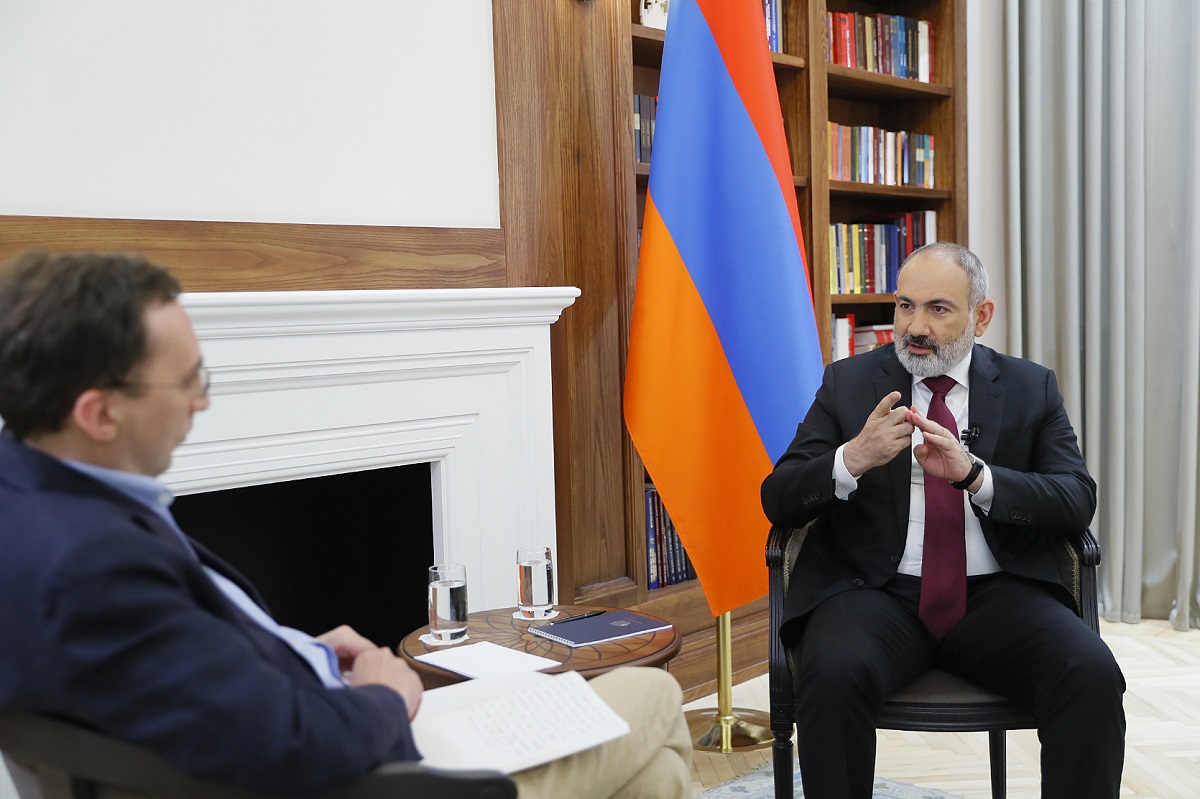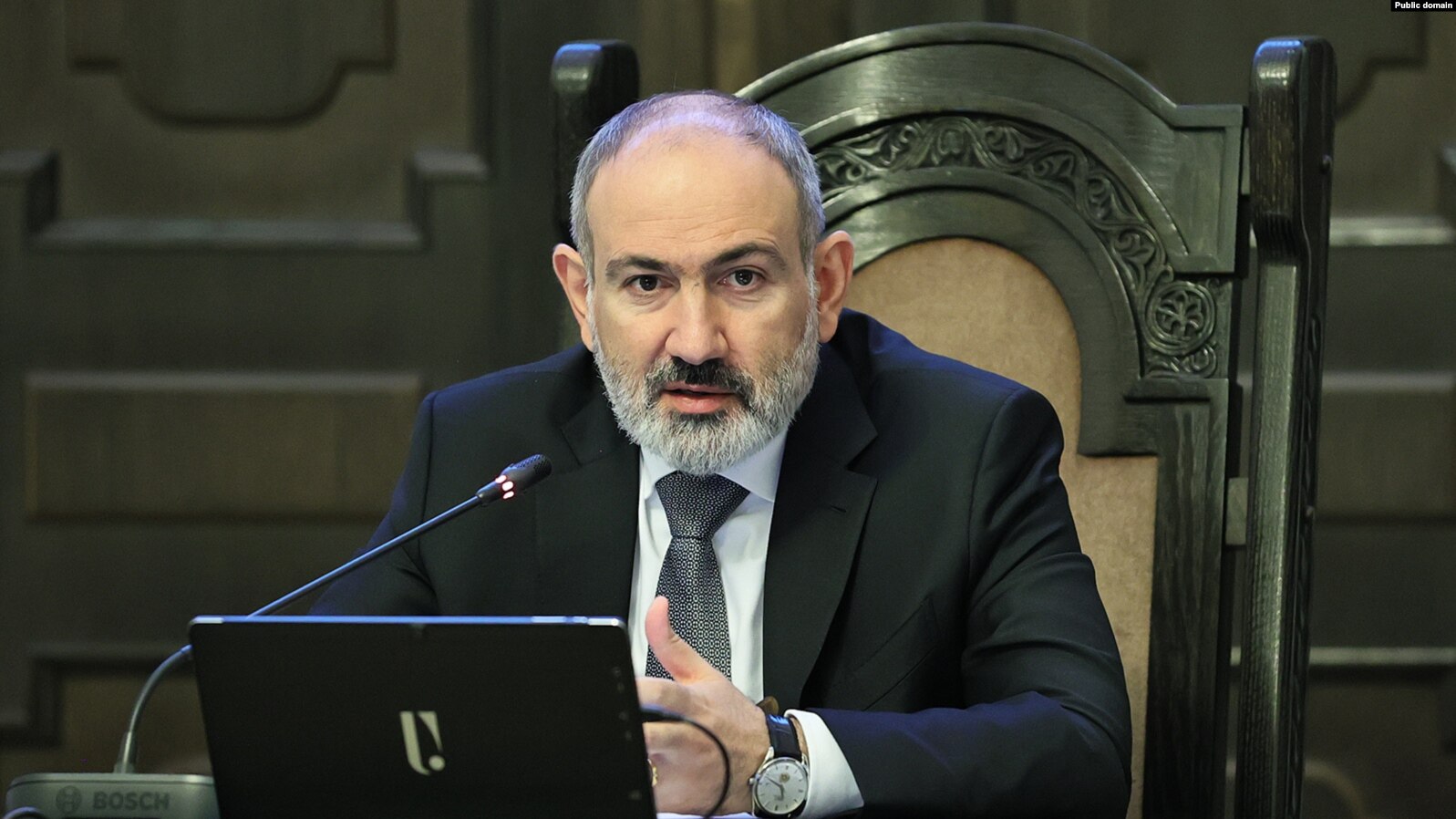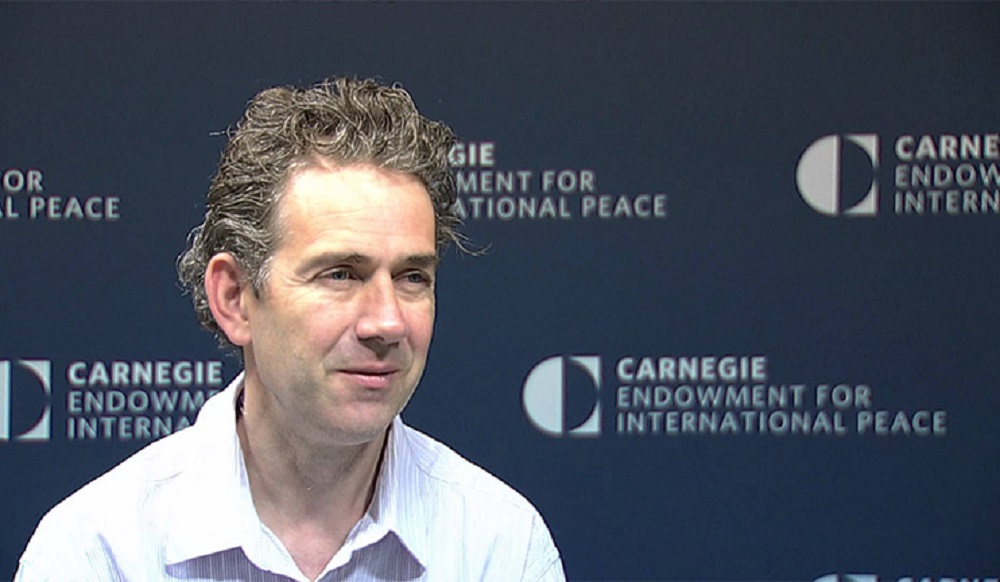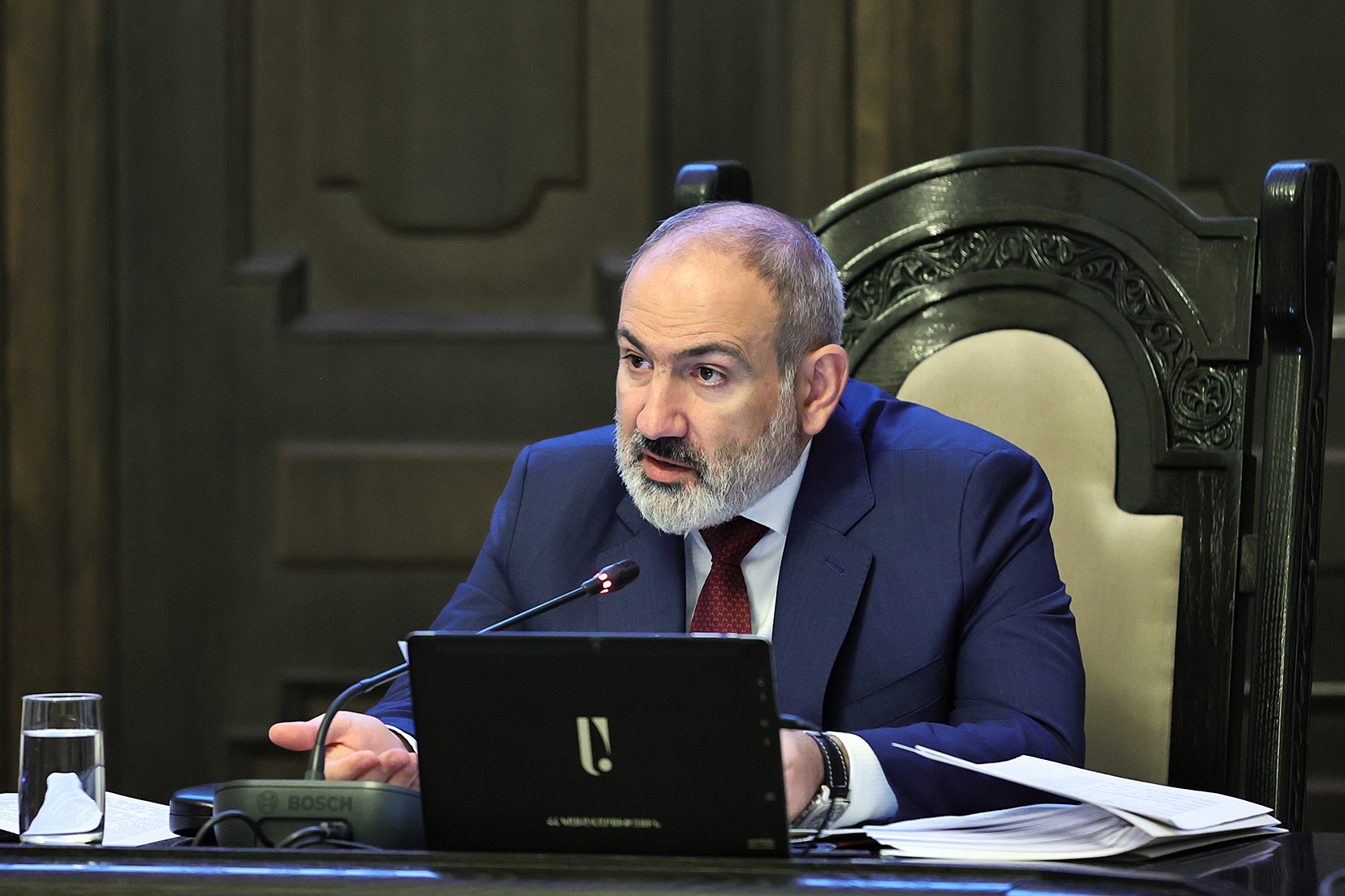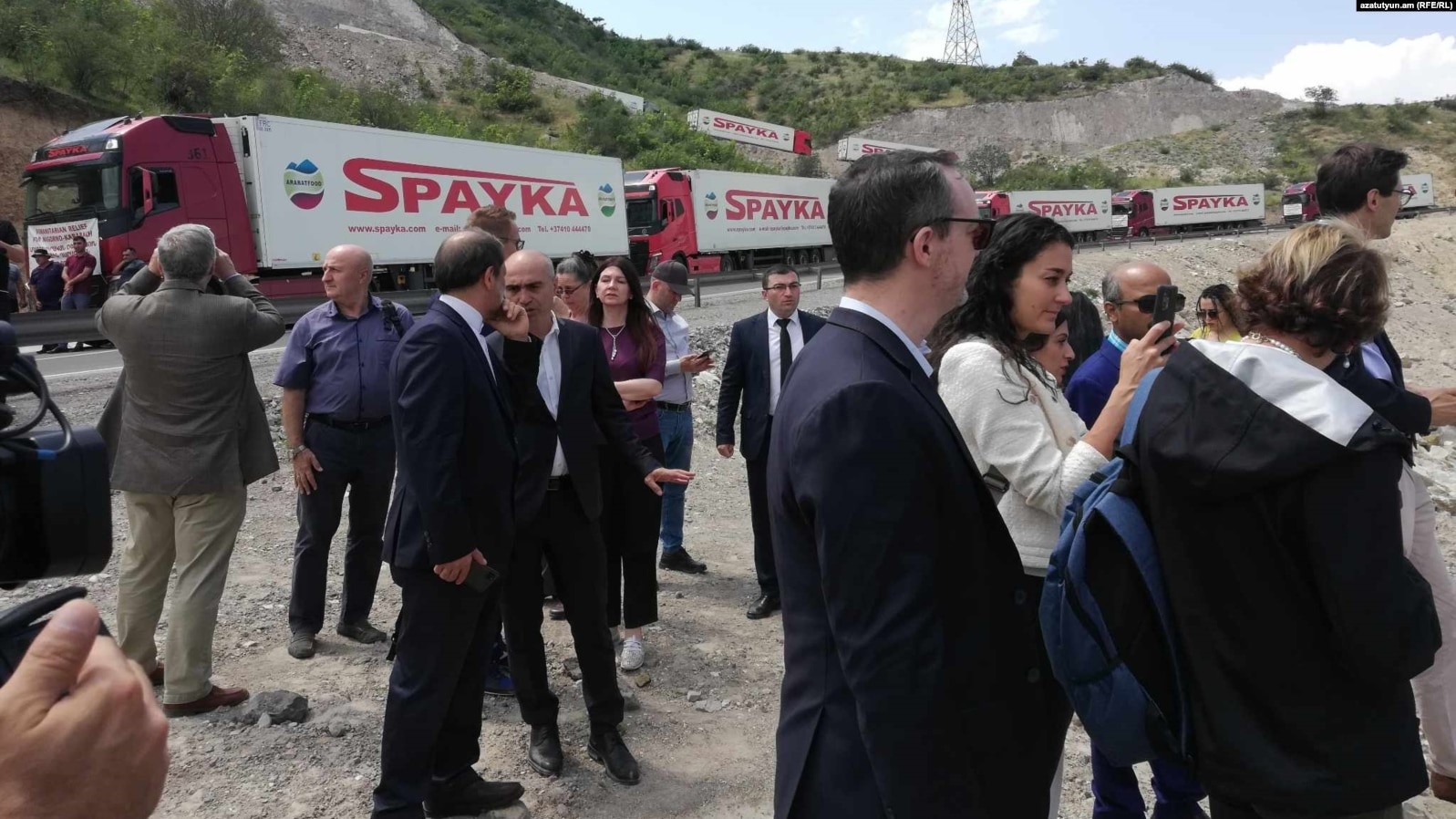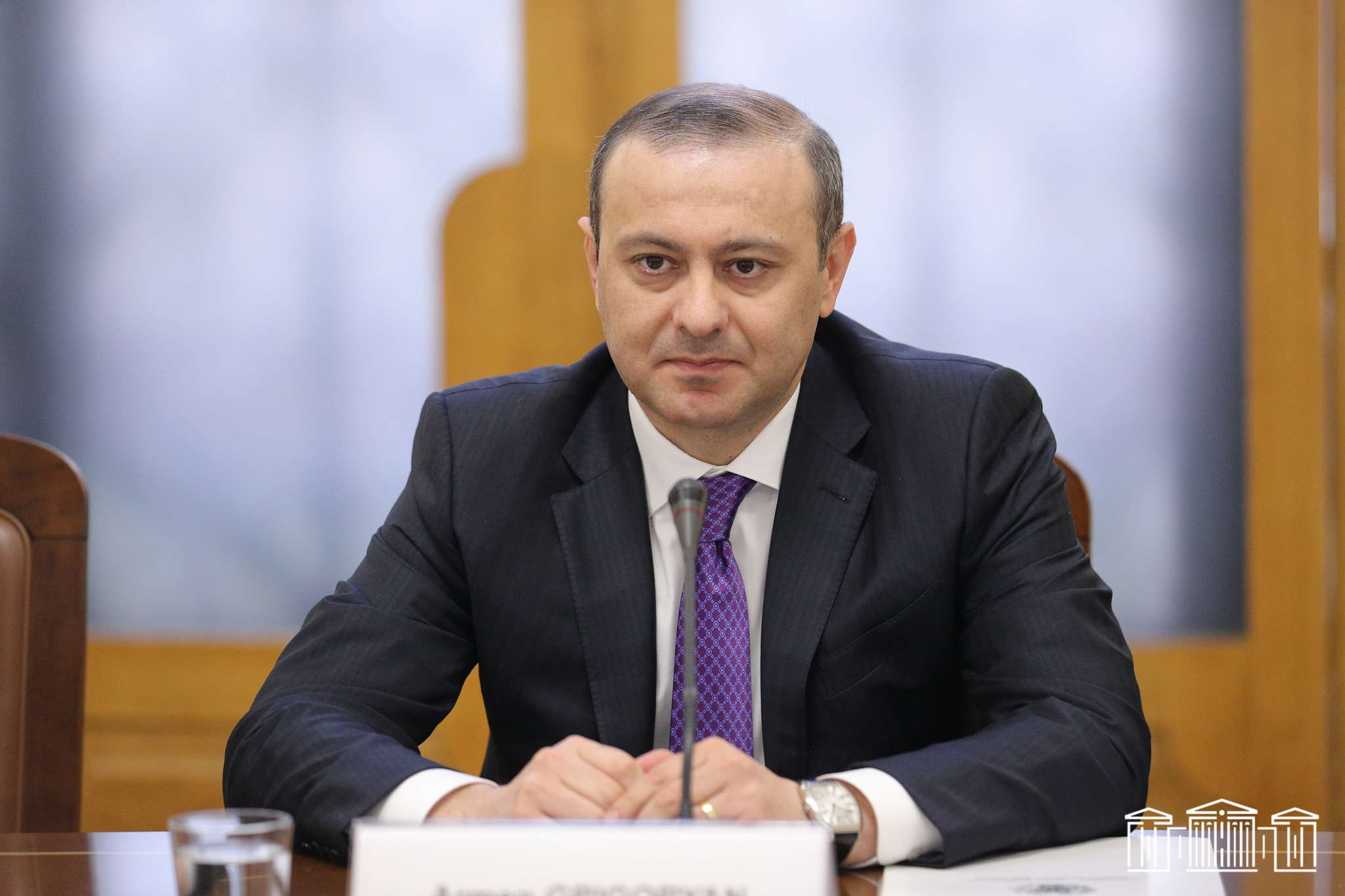'Arrest under protection of ICRC is war crime' – position of Armenia
Arrest of Vagif Khachatryan at the Lachin checkpoint
Protests have been held in Yerevan since the morning at the offices of the UN and the Red Cross. The demonstrators demand the return of 68-year-old Vagif Khachatryan from Azerbaijan, who was arrested at the Lachin checkpoint and transported to Baku. A resident of the unrecognized NKR was transported to Armenia by employees of the International Committee of the Red Cross to receive urgent medical care.
The General Prosecutor’s Office of Azerbaijan accuses him “of the attack on the village of Meshali in December 1991, which resulted in the death of civilians.”
According to Khachatryan’s daughters, the statement by the Azerbaijani prosecutor’s office that their father allegedly led “a criminal group that committed genocide in the village of Khojaly is an absolute slander.” They told journalists that my father worked as a driver in Soviet times and could not be the “organizer of the genocide.”
The Armenian Foreign Ministry announced that “the arrest of a person who is under the protection of international humanitarian law and the ICRC cannot be qualified otherwise than as a war crime.”
Armenian political scientists believe that “the issue of imposing sanctions against Azerbaijan is brewing”, and observe similar signs from the United States.
- Armenia sends humanitarian cargo to NK, Azerbaijan calls it a provocation
- “There are no difficulties in applying to the UN Security Council” – Pashinyan
- “It is useless to discuss illusory solutions” – Armenian analyst on the situation in NK
Information and comments
On July 29, State Minister of the unrecognized NKR Gurgen Nersisyan was the first to report that Khachatryan had been detained at the Lachin checkpoint.
“This was another step to make people afraid to go through the Lachin corridor even for the purpose of treatment,” Gurgen Nersisyan wrote on social networks.
He regarded this step of Baku as a consequence of “the recognition by the Armenian authorities of the territorial integrity of Azerbaijan and Artsakh as part of Azerbaijan”, and stressed the “practical inaction of the international community.”
Artak Beglaryan, adviser to the president of the unrecognized republic and former Ombudsman, told reporters that Khachatryan “was abducted in the presence of his daughter and representatives of the ICRC.” Beglaryan called the accusations by Azerbaijan false, and that “such a crime did not occur in the village of Meshali.”
“Vagif Cherkezovich Khachatryan was born in Artsakh in 1955, lives in the village of Patara, Askeran region. Like almost all men from Artsakh, he defended his homeland and security in 1991-1994. from Azerbaijani aggression,” Artak Beglaryan said.
Khachatryan’s daughter, Tsovinar, who accompanied her father with the ICRC staff, said that neither she nor the representatives of the Red Cross were explained why and where her father was being taken. She told reporters that he had a heart problem and needed urgent surgery: “He was not even able to stand at the checkpoint.”
On the same day, a rally was held in front of the office of the mission of the International Committee of the Red Cross in Nagorno-Karabakh, demanding the return of the “abducted citizen of the NKR”. The protesters demanded that the ICRC “declare its inability to ensure the security of the Armenians of Artsakh and the impossibility of the coexistence of the people of Artsakh with the Azerbaijanis.”
The Red Cross first reported that “during the humanitarian transfer of 15 patients, one person was detained.” Then he announced that representatives of the ICRC visited Khachatryan, he was given the opportunity to contact his family. On the morning of July 31, his daughter Vera denied this information during a rally in front of the UN office in Yerevan.
The Prosecutor General’s Office of the unrecognized NKR opened a criminal case “on the kidnapping of a citizen”: “During passport control on the basis of nationality, against his will and with the use of violence, unknown servicemen of the Republic of Azerbaijan actually abducted V. Khachatryan.”
“It is obvious that if Azerbaijan’s policy aimed at the forcible subjugation of Artsakh, which Baku presents to the international community as a settlement project, is carried out, then kidnappings, illegal detentions, extrajudicial executions, enforced disappearances and other mass violations of the rights of Artsakh Armenians will be massive.”
They expect “urgent and effective measures” from international actors to release Khachatryan and “suppress crimes against humanity committed by Azerbaijan.”
Protest actions in Yerevan
A group of young people began an indefinite sit-in near the building of the Red Cross in Armenia.
They demand the return of 68-year-old Vagif Khachatryan. The protesters blocked the entrances to the office and demanded a meeting with the head of the organization in Armenia.
Another protest demanding the release of Khachatryan is taking place outside the UN office in Yerevan.
During the rally one of Khachatryan’s daughters, Vera, spoke:
“Neither I nor other relatives were given the opportunity to contact my father. On the first day, the ICRC called my sister and said that they had seen my father, he was in a Baku hospital.”
Legal assessment
Armenia applied to the European Court of Human Rights with a demand to protect the rights of Vagif Khachatryan and to apply an interim measure against Azerbaijan. This was announced by the representative of Armenia on international and legal issues Yeghishe Kirakosyan.
Armenian Ombudsperson Anahit Manasyan denied the claim of the Azerbaijani prosecutor’s office, adding that “there is no information in any international intelligence system about the search for Vagif Khachatryan.”
She also recalled that the Red Cross discusses in advance the lists of people in need of medical care. Thus, according to her, “Baku gave its consent to the transfer of the patient, and then carried out an unlawful interference with fundamental human rights.”
According to her, this means Azerbaijan’s violation of the Geneva Convention of August 12, 1949 and Article 37 of the Additional Protocol on the Protection of Victims of International Armed Conflicts.
Armenian Foreign Ministry statement
The Armenian Foreign Ministry condemned the “detailed pre-planned kidnapping of Khachatryan”, substantiating its position with the following:
“The ICRC provides the parties with lists of transferred patients in advance and transfers them only after agreement. Immediately after the abduction, the General Prosecutor’s Office of Azerbaijan released a statement full of false narratives and accusations.”
Armenian diplomats consider the incident at the Lachin checkpoint a “war crime” aimed at completely blocking the activities of the Red Cross in Nagorno-Karabakh:
“It is noteworthy that this operation of the Azerbaijani authorities is the actual implementation of constantly sounding threats, as well as the statement made by the head of state on May 28 that “the checkpoint in the Lachin corridor will be a lesson for the Armenians of Nagorno-Karabakh and that they will come with their heads bowed.” The Armenian side has repeatedly warned international partners about this, urging them to condemn this and other similar statements.
This arbitrariness, carried out in parallel with the complete blocking of the Lachin corridor and the refusal to resolve issues of the rights and security of the population of Nagorno-Karabakh, is aimed at intimidating the population of Nagorno-Karabakh and once again seriously casts doubt on the possibility of not only ensuring the minimum rights of the people of Nagorno-Karabakh in the absence of international involvement, but and realization of the right to life”.
Comments
Political observer Hakob Badalyan believes that “another impudent and cynical act of Azerbaijan proves that Baku was strongly influenced by the “diplomatic landing” that arrived in Kornidzor.” He means the visit by diplomats and representatives of international organizations to the beginning of the Lachin corridor, where since July 26 a convoy of humanitarian aid from the Armenian government for the besieged NK has been idle.
“Unfortunately, we are not dealing with an absurd situation, but with the actual capture or hostage of another of our compatriots, and from the “hands” of the Red Cross,” he said.
He warns that the harsh rhetoric of the Armenian authorities against international actors, especially “in conditions of extremely scarce resources”, will lead to unnecessary complications. According to him, the task of the country’s society now is to form a “discourse of responsibility for the aggression of Azerbaijan by everyone”, in particular, Russia, the United States, the European Union and other international structures:
“It is a matter of everyone’s responsibility that in this mode of world war, when everyone is very cruelly and cold-bloodedly busy dividing the world, no one can appoint someone as a “scapegoat” in the Armenian issue and solve their problems, freeing their hands and head due to this.”
According to political scientist Tigran Grigoryan, “the kidnapping of an Artsakh citizen proves and demonstrates that Azerbaijan is crossing new red lines every time, squeezing the ring.”
In the context of the humanitarian crisis that has developed in Nagorno-Karabakh and the position of Baku, it is difficult to imagine that “any issues will be resolved without a proactive policy.”
“At this stage, it is necessary to carry out very clear work in all areas, both in various negotiation formats and strengthening international pressure, as well as bringing the issue up for discussion in the UN Security Council,” Grigoryan stressed.
He says a certain diplomatic activity is already observed and “the issue of imposing sanctions against Azerbaijan is brewing, Washington is starting to think about it.”
Follow us – Twitter | Facebook | Instagram
Arrest of Vagif Khachatryan at the Lachin checkpoint










